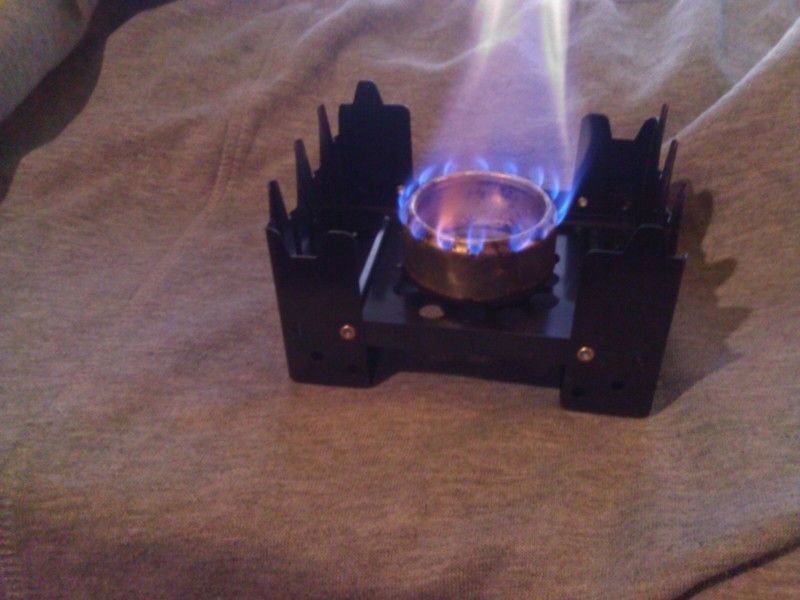@Santaman - "Meths" is an abbreviation of"methylated spirits" . It is what is called in the USA"denatured alcohol". The nearest commonlu available equivalent is Klean Strip Green, which is 95%ethanol(ethyl alcohol) abot 4% methanol (methyl alcohol) and 1% methyl ethyl ketone. UK "Meths" is 95% ethanol, 4% methanol plus a drop of pyridine to make it taste and smel.l foul, and a little purple dye so that you won't mistake it for anything else. BTW Klean strip SLX is also denatured (ethyl)alcohol, but has nearly 50% methanol. "Heet" (yellow bottle) is 99%methanol. Do not confuse with "Heet" red bottle, whcih is isopropaniol. The much vaunted "Bio ethanol" is also denatured (ethyl) alcohol with the similar 5% methanol as "Meths" or Klean Strip Green.
As others have pointed out, petroleum fuels are actually more toxic than the various alcohols, as well as being much more dangerous because they easily form explosive mixtures with air. Butane and propane possibly the worst in this respect because they are gaseous when uncontained at normal daytime summer temperatures.
Just for reference for the bushcrafters here (as opposed to campers/hikers). Wood smoke contains far, far more extremely dangerous substances than the combustion products of any alcohol. Even so, it would be wrong of me to state that anyone who uses wood fires to cook is obviously a complete idiot and should not be allowed out without a responsible chaperone. All stuff that burns is potentially dangerous, when it is burning, it is at its most dangerous. Nearly all combustion products are potentially dangerous. It is for the responsible bushcrafter/camper/hiker to learn what those dangers are and how to circumvent them by good practice. Bleating on about the dangers of cooking in aluminium, using xyz as a fuel without even attempting to learn anything about the subject is boring for those of us who make the attempt.

